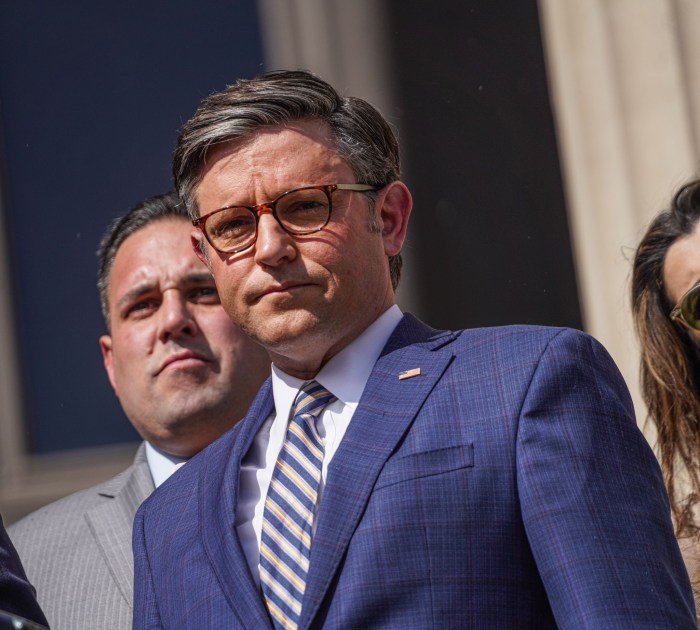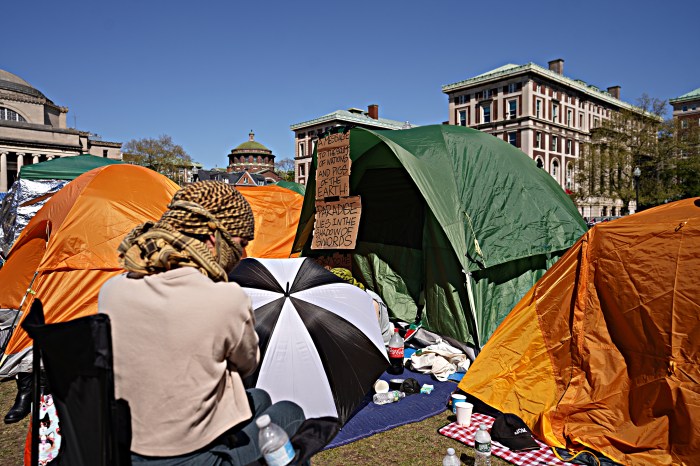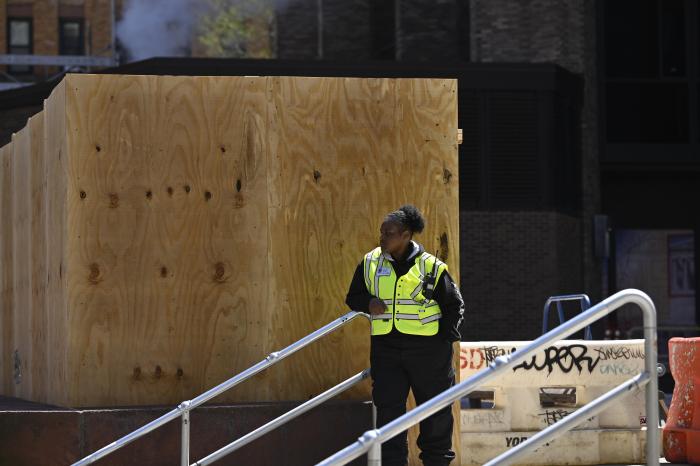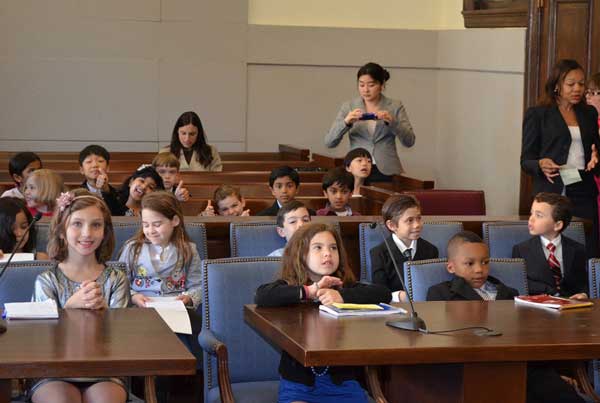 [/media-credit]
[/media-credit]
- P.S. 276 second graders awaited a turn to make their arguments before Judge Shelley Chapman in Bowling Green’s U.S. Bankruptcy Court during a school field trip last week.
BY ALINE REYNOLDS | The boys were decked out in suits, and the girls sported flowery shirts and dresses.
Knock knock. “All rise,” Honorable Judge Shelley Chapman called, prompting the P.S. 276 children to shuffle themselves out of seats twice their size to stand before the judge.
The second grade class’s field trip last week to the Southern District of New York’s U.S. Bankruptcy Court in Bowling Green was far from a standard mock trial; the session quickly morphed into an open-ended discussion about everything from modern-day segregation and capital punishment to the pilfering of potato chips. The trip was the outgrowth of several classes on the civil rights movement.
The class began with a reenactment of the landmark 1954 Brown v. Board of Education case, in which the second graders acted out plaintiff Oliver Brown’s attorneys by reciting compelling opening and closing arguments before Judge Chapman.
People of different races shouldn’t have to go to separate schools, and “just because people aren’t white, doesn’t mean we have to get treated unfairly,” said second-grader Miles Avery.
“It is good to have people from different backgrounds at the same school, because that school can turn into a big world with a lot of countries in it, because that school is filled up with a bunch of kids from 310 beautiful countries in the world,” said Avery.
Several of Avery’s spunky classmates successively spoke before the judge and convinced her to issue a mock ruling in favor of the young prosecutors.
“These were excellent arguments — even better than many of the arguments I hear every day,” said Chapman.
The judge then gave the class a history lesson on the 1896 Plessy v. Ferguson case, which authorized racial segregation in public facilities under the “separate but equal” principle.
Brown v. Board of Education later overturned that ruling, Chapman explained to the students. During an interview with Downtown Express while the children were on break, she elaborated on the relevance of the Brown v. Board of Education case in contemporary society. It was recently used, for example, to defend underprivileged Czechoslovakians’ rights to non-discriminatory access to education.
“We’re still not equal, and there are still people in the U.S. who don’t treat people equally,” Chapman told the students. “I’m sure you’ll all grow up to be people who understand this… and do good things to make sure people are treated fairly.”
The second graders then fired off impressive questions to the judge, who spoke about her upbringing, her passion for her work and the ins and outs of the U.S. judiciary system.
Chapman then put Michael McCormack, the father of second grader Tim McCormack, on the witness stand to talk about his career as a capital markets lawyer. McCormack shed light on how legal cases can take years to resolve, citing a longstanding dispute between a bank and an insurance company that he’s litigating.
Chapman chimed in, telling the students, “Yesterday, I had a case that started before you were born, in 1999. In the real world, things take a long time.”
Then came perhaps the gravest question of the day.
“What do you think of the death penalty?” asked second grader Riley Keenan.
After Chapman opined on the controversial subject, Keenan offered her view.
“If I were them, I’d just really put them in jail for a long time,” said the youngster.
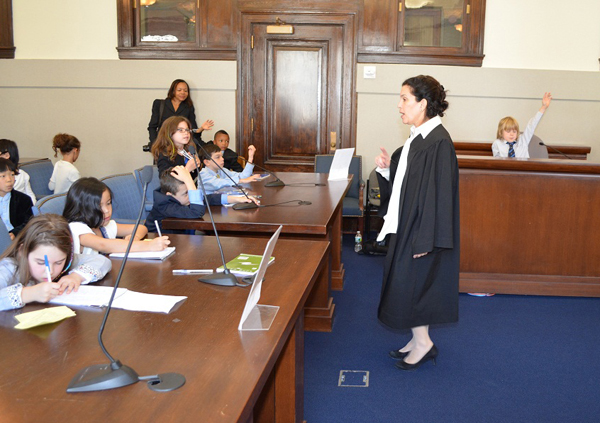
The case of the missing potato chips
The class’s teacher, Dawn Panebianco, sensed the need for some comic relief. “This might not be as sophisticated as my students’ questions,” she said, “but what if snacks in the classrooms started disappearing?” referring to the vanishing of a bag of potato chips in homeroom last week.
Chapman nicknamed it the “case of the missing potato chips” and swiftly assigned a handful of the zealous second graders to the judge’s seat and the witness stand. McCormack and another witness disclosed possible evidence of the crime and its alleged culprit — the discovery of potato chip crumbs following the theft, for example, and the color of the suspect’s hair.
Ultimately, however, conflicting testimony prompted Chapman to dismiss the case. She told Panebianco that, in the event of future potato chip bag disappearances, the teacher could file a motion with the court asking that each of the students be interrogated under oath. The court also issued a mock caution against accusations between the classmates unless they’re backed with evidence.
“This is unbelievable,” Chapman said, chuckling and adding that she was wowed by the children’s perspicacity.
“I just found the sophistication of their questions and their understanding of the issues to be remarkable.” she said. “I know some lawyers that could use some junior law clerks!”










